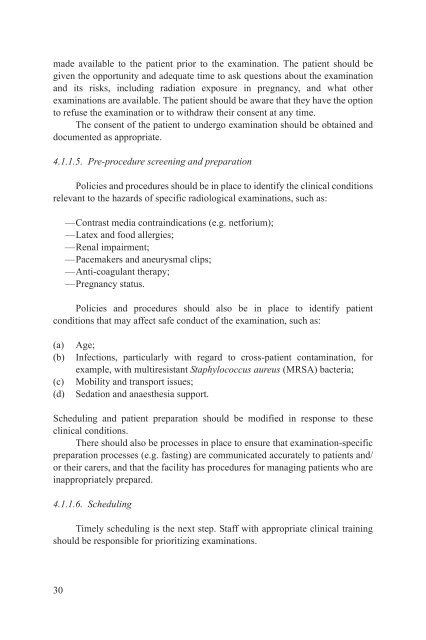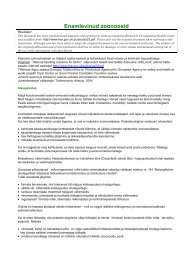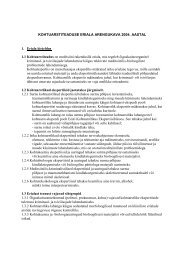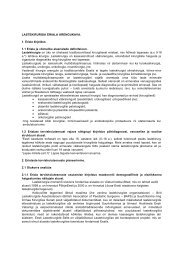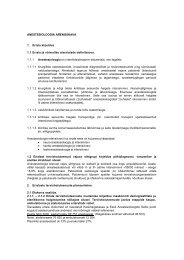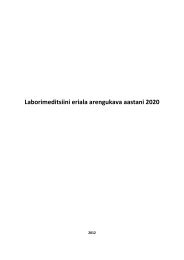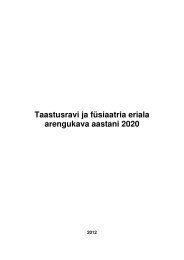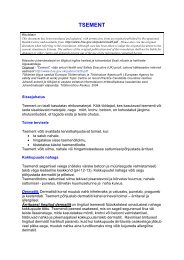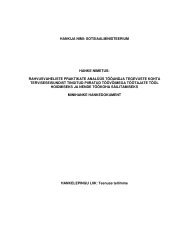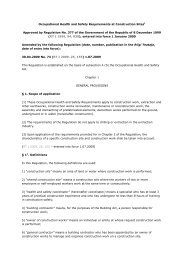SErIES IAEA HumAn HEAltH SErIES IAEA Hum
SErIES IAEA HumAn HEAltH SErIES IAEA Hum
SErIES IAEA HumAn HEAltH SErIES IAEA Hum
Create successful ePaper yourself
Turn your PDF publications into a flip-book with our unique Google optimized e-Paper software.
made available to the patient prior to the examination. The patient should be<br />
given the opportunity and adequate time to ask questions about the examination<br />
and its risks, including radiation exposure in pregnancy, and what other<br />
examinations are available. The patient should be aware that they have the option<br />
to refuse the examination or to withdraw their consent at any time.<br />
The consent of the patient to undergo examination should be obtained and<br />
documented as appropriate.<br />
4.1.1.5. Pre-procedure screening and preparation<br />
Policies and procedures should be in place to identify the clinical conditions<br />
relevant to the hazards of specific radiological examinations, such as:<br />
—Contrast media contraindications (e.g. netforium);<br />
—Latex and food allergies;<br />
—Renal impairment;<br />
—Pacemakers and aneurysmal clips;<br />
—Anti-coagulant therapy;<br />
—Pregnancy status.<br />
Policies and procedures should also be in place to identify patient<br />
conditions that may affect safe conduct of the examination, such as:<br />
(a)<br />
(b)<br />
(c)<br />
(d)<br />
Age;<br />
Infections, particularly with regard to cross-patient contamination, for<br />
example, with multiresistant Staphylococcus aureus (MRSA) bacteria;<br />
Mobility and transport issues;<br />
Sedation and anaesthesia support.<br />
Scheduling and patient preparation should be modified in response to these<br />
clinical conditions.<br />
There should also be processes in place to ensure that examination-specific<br />
preparation processes (e.g. fasting) are communicated accurately to patients and/<br />
or their carers, and that the facility has procedures for managing patients who are<br />
inappropriately prepared.<br />
4.1.1.6. Scheduling<br />
Timely scheduling is the next step. Staff with appropriate clinical training<br />
should be responsible for prioritizing examinations.<br />
30


